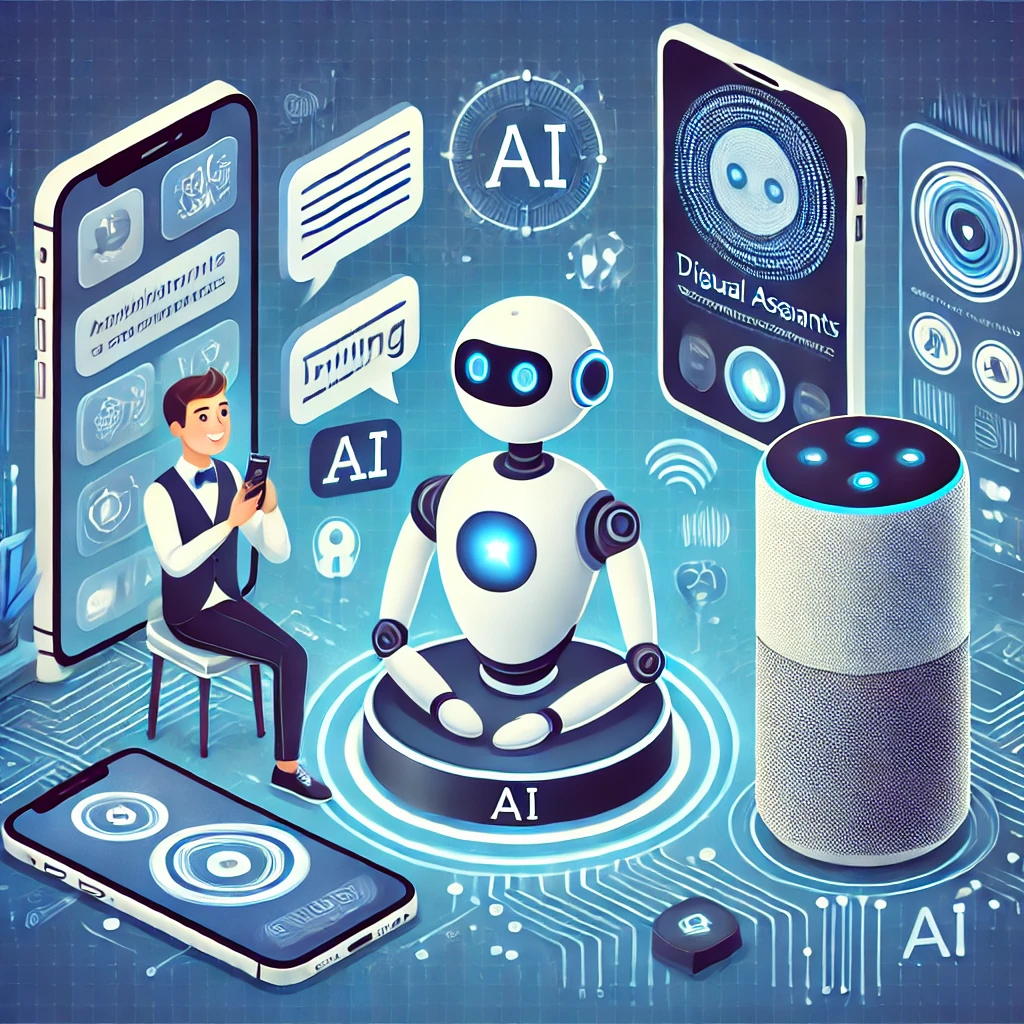Artificial intelligence (AI) has rapidly evolved to become an integral part of our daily lives, and one of its most prominent applications is in the form of virtual assistants and chatbots. These AI-powered tools are designed to help users perform a wide range of tasks, from setting reminders and answering questions to managing schedules and providing customer support. As these technologies continue to improve, they are becoming increasingly capable of understanding and responding to human needs, ultimately simplifying our lives in various ways. This article explores how virtual assistants and chatbots are transforming our interactions with technology and making everyday tasks more efficient.
The Rise of Virtual Assistants
Virtual assistants are AI-driven software programs that can perform tasks or services for an individual based on verbal commands or text input. Some of the most well-known virtual assistants include Apple’s Siri, Amazon’s Alexa, Google Assistant, and Microsoft’s Cortana. These assistants leverage natural language processing (NLP) and machine learning algorithms to understand user requests, process information, and deliver appropriate responses or actions.
One of the key benefits of virtual assistants is their ability to provide hands-free convenience. For example, users can ask their virtual assistant to play music, set a timer, or send a text message without needing to interact directly with their devices. This level of convenience is particularly valuable in scenarios where multitasking is necessary, such as when cooking, driving, or working on a project.
Moreover, virtual assistants are increasingly integrated with smart home devices, allowing users to control lights, thermostats, security systems, and other home appliances through voice commands. This integration not only enhances convenience but also contributes to energy efficiency and home security by enabling users to automate and monitor their home environments more effectively.
The Evolution of Chatbots
Chatbots, another application of AI, are designed to simulate human conversation, often in a text-based format. These bots can be found on websites, messaging apps, and customer service platforms, where they assist users by answering questions, providing information, and guiding them through processes. Unlike virtual assistants, which typically handle a broader range of tasks, chatbots are often specialized for specific functions, such as customer support or lead generation.
One of the main advantages of chatbots is their ability to provide instant responses to user inquiries, which significantly enhances the efficiency of customer service. Businesses can deploy chatbots to handle common queries, freeing up human agents to focus on more complex issues. This not only reduces wait times for customers but also improves overall service quality.
Advanced chatbots are equipped with NLP capabilities, allowing them to understand context, recognize intent, and engage in more natural and meaningful conversations. Some chatbots can even learn from previous interactions to improve their performance over time, providing more personalized and accurate responses.
How AI-Powered Tools Simplify Everyday Tasks
The integration of AI in virtual assistants and chatbots has made it easier for individuals to manage their daily routines and access information quickly. For example, virtual assistants can help users stay organized by managing calendars, setting reminders, and sending notifications for important events. They can also provide real-time information, such as weather updates, traffic conditions, and news, making it easier for users to plan their day.
In the workplace, virtual assistants and chatbots are increasingly used to streamline operations and enhance productivity. For instance, virtual assistants can schedule meetings, send emails, and provide reminders for deadlines, allowing professionals to focus on more strategic tasks. Chatbots, on the other hand, can automate customer interactions, handle routine inquiries, and provide support around the clock, which is particularly beneficial for businesses with a global customer base.
In addition to improving efficiency, AI-powered tools are also enhancing accessibility. For individuals with disabilities, virtual assistants offer voice-controlled access to technology, enabling them to perform tasks that might otherwise be challenging. Similarly, chatbots can provide instant assistance to users who may have difficulty navigating websites or apps, ensuring that they can access the information and services they need.
Privacy and Security Considerations
While virtual assistants and chatbots offer numerous benefits, their widespread adoption also raises important privacy and security concerns. These AI tools often require access to personal data, such as contact lists, location information, and browsing history, to provide personalized services. As a result, there is a risk that this data could be misused or compromised if not properly secured.
To address these concerns, it is essential for developers and companies to implement robust security measures, such as encryption and secure authentication protocols, to protect user data. Additionally, users should be informed about how their data is being used and have the ability to control the information they share with AI-powered tools.
Conclusion
As AI continues to advance, virtual assistants and chatbots will play an increasingly important role in simplifying our lives. These tools offer a wide range of benefits, from improving productivity and enhancing customer service to providing greater accessibility and convenience. However, it is crucial to balance the advantages of these technologies with the need for privacy and security, ensuring that AI-powered tools are used responsibly and ethically. As we move forward, the continued evolution of virtual assistants and chatbots will undoubtedly lead to even more innovative and impactful ways of integrating AI into our daily routines.



This is so exciting! Imagine, AI assistants making our lives easier, from work to shopping! They’ll be like having a personal helper. It’s cool, but we need to be careful about privacy, right? Still, the future of AI assistants sounds amazing! I can’t wait to see what’s next!
Ya, me too… But won’t we become like robots?
Yup, we’re getting a lil too close to 1984… 💀💀
Yo, when’s the day bots gonna be doin ALL the work, ya know?
Hol up i think i kno… Neva!! 😂
virtual assistants r overrated 👎 meh